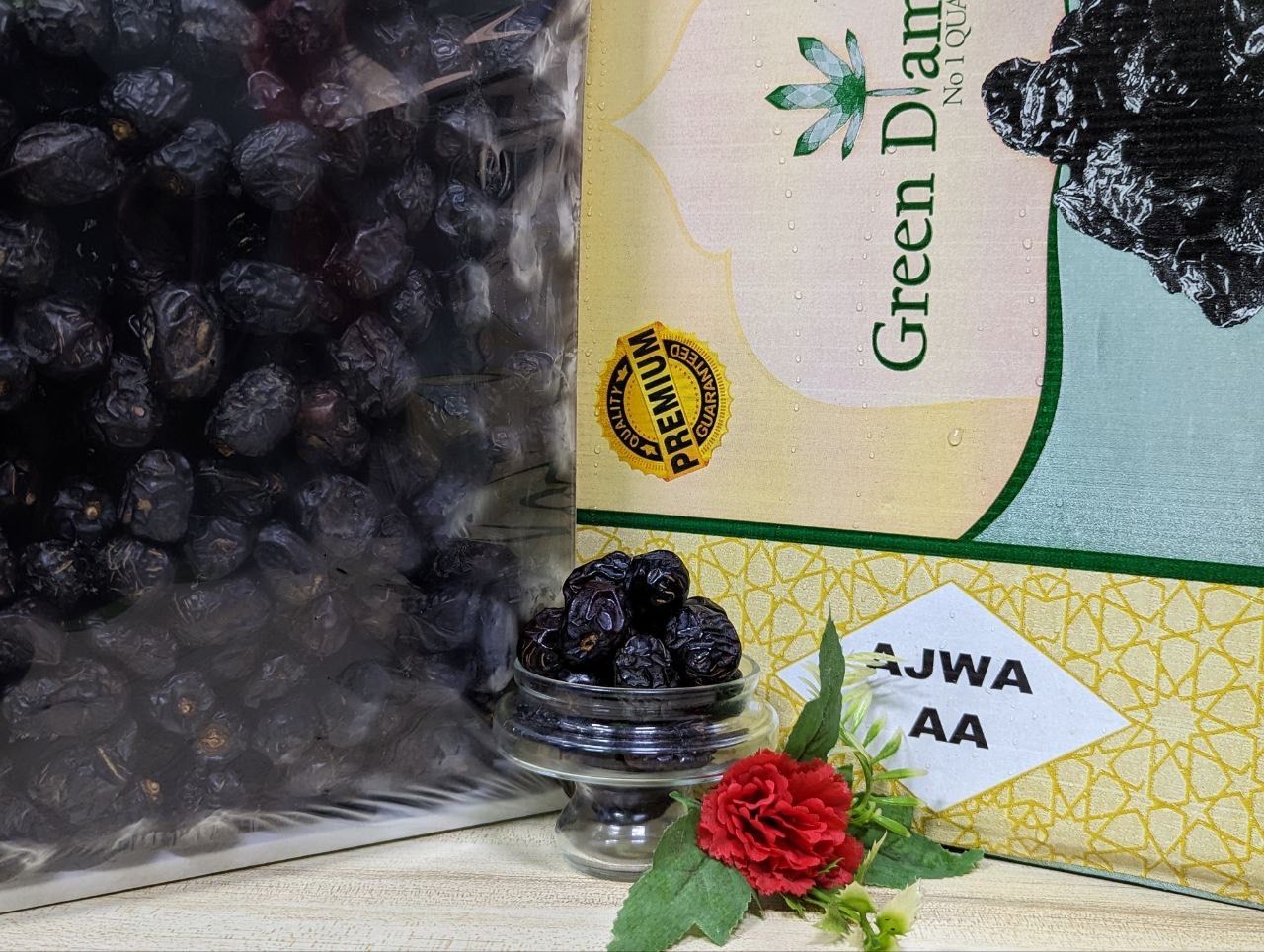Kurma Ajwa Borong: the Quest for Domestic Cultivation

Introduction:
In Malaysia, dates, often referred to as “Kurma,” hold a special significance. During Ramadan and other religious festivals, these sweet treats become a staple, enjoyed for their delicious taste and symbolic meaning. But when it comes to Kurma Ajwa Borong, a prized variety known for its dark color and rich flavor, Malaysia finds itself largely dependent on imports.
The Allure of Ajwa Dates
Hailing from the holy city of Madinah in Saudi Arabia, Kurma Ajwa holds a special place in Islamic tradition. Believed to possess numerous health benefits and mentioned in Hadiths (sayings of Prophet Muhammad), these dates are a popular choice for consumption and gifting. Their unique taste and texture, along with their cultural significance, fuel the high demand for Ajwa dates in Malaysia.
Malaysia’s Date Trade: A Reliance on Imports
Despite the love for dates, particularly Ajwa dates, Malaysia’s date industry is currently dominated by imports. Several factors contribute to this reliance:
- Climate: The hot and dry climate of date-producing regions like the Middle East and North Africa is ideal for date palm cultivation. Malaysia’s tropical climate, while suitable for many crops, presents challenges for large-scale date palm growth.
- Expertise: Date palm cultivation requires specialized knowledge and techniques. As Malaysia’s date industry is still in its nascent stages, expertise in areas like pollination and pest control might be limited.
- Economic Factors: Importing established date varieties like Ajwa dates can be more cost-effective in the short term compared to the initial investment required for domestic cultivation research and infrastructure development.
This import-centric approach ensures a steady supply of Ajwa dates and other date varieties for Malaysian consumers. However, it also raises questions about long-term sustainability and potential environmental concerns associated with long-distance transportation.
A Glimpse of Hope: Exploring Domestic Cultivation
While the landscape is currently dominated by imports, there are signs of a potential shift towards domestic date palm cultivation in Malaysia. Here’s why:
- Government Initiatives: Recognizing the potential of the date industry, the Malaysian government has implemented initiatives to encourage domestic date palm cultivation. These initiatives include providing subsidies for farmers, conducting research on suitable date palm varieties for the Malaysian climate, and offering training programs.
- Technological Advancements: Advancements in agricultural technology, such as drought-resistant date palm varieties and efficient irrigation systems, could make date palm cultivation more viable in Malaysia.
- Growing Demand: The ever-increasing demand for dates in Malaysia creates a strong incentive for exploring domestic production as a way to meet local needs and potentially reduce reliance on imports.
The journey towards a robust domestic date industry in Malaysia will likely be gradual. However, with continued government support, technological advancements, and private sector investment, the possibility of enjoying homegrown Ajwa dates in the future becomes more tangible.
Conclusion
Kurma Ajwa Borong, a symbol of tradition and taste, highlights the current reliance of the Malaysian date industry on imports. While challenges exist for domestic cultivation, ongoing initiatives and technological advancements offer a glimmer of hope for the future. As Malaysia explores its potential in date palm cultivation, the possibility of enjoying locally grown Ajwa dates becomes a prospect we can all look forward to.
Key Highlights:
- Kurma Ajwa, a prized date variety, is a popular choice in Malaysia.
- Malaysia currently relies heavily on imports to meet its date demand.
- Factors like climate, expertise, and economic considerations contribute to the import dominance.
- Government initiatives and technological advancements offer hope for future domestic cultivation.
- A self-sufficient date industry in Malaysia could be a reality in the years to come.